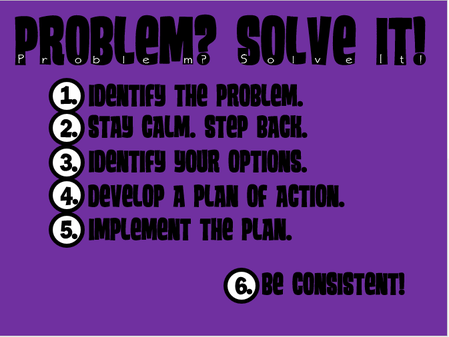 Ok cheesy title I know... but today I absorbed SO MUCH great information from a wonderful team of teachers and I wanted to sum it up to share with all of you. It is a given that any and every elementary campus faces problems on a daily basis, some bigger than others of course, but nevertheless a problem is sure to arise. When faced with a problem-no matter how small, it is good to be equipped with the knowledge of what to do and how to make the problem a beneficial learning experience for all parties involved. Through several conversations and situations, I was able to contemplate the process in which a problem is solved... Step 1: Obviously, you need to figure out what the problem is and why it is a problem. Step 2: It is always beneficial to remove yourself from the situation and look at it from an outsiders point of view. With unbiased eyes you will be able to ask yourself "is this really a problem?" or "is this a problem I can fix on my own? Do I need assistance in coming up with a solution to this problem?" Jumping to conclusions never helped anyone- and I am beginning to seriously realize the importance of evaluating a situation. Step 3: After determining the magnitude of the problem, it is good to determine what you are capable of doing to solve the problem... this is when you would decide if you need to solicit help, or if you have it under control. Think about what you are able to do, what is appropriate to do, and what are the most important and beneficial steps to take. Step 4: This is my favorite part. Develop a plan of action. Construct a well thought out model of how you propose the issue be resolved. Sure for smaller problems this wouldn't be put to paper or anything, but for those hefty troubles that require quite a doozy of a plan, it is important to get your thoughts clear and concise so that the plan can be carried out in a way that benefits all parties. Step 5: Well you developed the plan...so.... MAKE IT HAPPEN. Put the plan into action and watch your ideas unfold. If the plan flops then you have two options: A) Hang up your hat-Owell you tried. or B) Reflect on why your plan did not produce the outcome you so desired. If the solution is worth fighting for then reevaluate your options and devise an edited version of the plan to implement. Step 6: BE CONSISTENT! I hear this word- consistent- OVER AND OVER again and to me, that makes sense, because consistency is the key to making a change. (HA! I consistently hear the word consistent!) To me, if you plan on making a change, it does not make sense to say one thing and then do another, or to just give up after your plan doesn't immediately work. Staying consistent is the way to build a routine and backbone to base decisions off of. With a plan that is implemented consistently, there is always a way to come up with a solution and there are rarely any questions or vague expectations of what is to happen. I need to remember to always set clear, understandable expectations and follow through- this will lead me to the development of a distinct set of guidelines to solve any problem I may face.
1 Comment
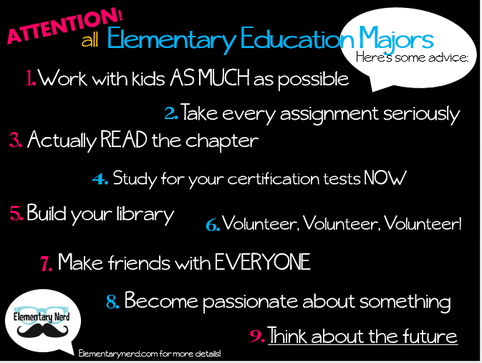 If I have learned anything in the last four years of college it is that time just keeps moving faster and faster. There were times during my college career that I wished I could just freeze in order to really figure out what my attention needed to be focused on. Looking back, I realize that there are many things I would tell myself if I could start over. To make your life more easier I have compiled a list of advice in hopes that you will figure out what I have learned sooner than I did. 1. Work with kids as much as possible- No matter what the age, race, background or situation, find a way to work with kids. During student teaching, I have been told several times that I am a very "natural" teacher and seem comfortable in front of the class- and that is because I AM comfortable. I have worked with literally every age group, and I have figured out tendencies and personalities that are common in each group. Figuring out these tendencies has tremendously helped me in being able to communicate to students. 2. Take every assignment seriously- SERIOUSLY! There have been so many instances just in the last 6 weeks where I have wished I payed attention to a certain lesson more closely, or put more work into a certain project because I could have used it while teaching. Instead, I am re-making lesson plans, or researching information to figure out what I need to know to be successful teaching. 3. Actually READ the chapter- This goes along with #2... It is a frustrating feeling when a group of teachers is talking about something that you remember reading in a text book somewhere, but you cannot figure out exactly what it is they are talking about. HINT- Education is FULL of acronyms... ARD, CALLA, ATE, NAEP to name only a FEW. When these acronyms are flying out of mouths everywhere in the school building, it's nice to know what they stand for. 4. Study for your certification tests now- Yes, in a perfect world you wouldn't have to study at all if you really read the chapters and took your assignments seriously, but I understand you are human and sometimes it's easier just to get by. It does take a load of stress off in the end if you are aware of what you should be remembering for the certification tests. OH MY how awesome would it have been to look over the test study guide sophomore year of college and be able to note information as I learned it. 5. Build your library- Start collecting children's books or young teen novels so that when you actually have a classroom, you don't have to start from scratch. Most libraries periodically have book sales where you can fill up a grocery sack full of books for around $5... FIND THOSE! 6. Volunteer, Volunteer, Volunteer!- I cannot stress this enough! I constantly rave about how fortunate I am to be in the student teaching situation that I am in... and this situation unfolded due to the fact that I voluntarily worked in this amazing elementary school on my days off from class. I gained real world experience when others were simply learning from text. The willingness to give your time volunteering is a BIG indicator of what kind of teacher you will be. Teachers are constantly asked for their time and when you show that you are willing to give your time, you are making yourself a more marketable candidate for hire. 7. Make friends with EVERYONE- It is important to have support from everywhere when you teach. Having people on your side-from the janitor, to the vice principal and everyone in between- is a very great way to have a successful and enjoyable career. Start making friends NOW by volunteering and through student teaching. It is important to have a good reputation and making friends is a good way to get one. 8. Become passionate about SOMETHING- This is incredibly important! It is extremely easy to get bogged down with everything that is required from you as an education major, but having something to drive you will help you stay on track to meet your ultimate goal. Whether you want to see change in education through the use of music or technology, or you want to be a support system for English language learners, whatever it is, find something that you stand for. A willingness to make a difference is the only motivation you need to keep you excited about your chance to teach in the near future. 9. Think about the future- I wish I could shout this from the rooftops. PLAN AHEAD! I was able to graduate in 4 years- but this is quickly becoming an unusual occurrence for college students. My classes were filled with 5th and 6th year seniors, and it wasn't because they were lazy or unintelligent, it was mainly due to planning issues. I was able to take summer classes and pack my semesters in order to graduate in 4 years, but I would advise that you look ahead at your degree plan and decide when you need to take certain classes and what you need to do in order to be successful. I have always been geared to think of the future, and it has really helped me in having every form filled out, every assignment done and every deadline met in time to have a life as well! Planning is essential and a conscious mind for what is coming will make the difference between 4 years in college and years worth of wasted time and money. It is "Motivation Monday" and I found a great resource to help motivate your students. This book is called the "The Energy Bus for Kids" and is an adaptation of "The Energy Bus", an award winning fable by Jon Gordon. This book has an interactive teacher/parent guide and an activity journal at www.energybuskids.com. If you really enjoy it, there are programs offered by Mr. Gordon himself such as assemblies for students, workshops for teachers, and retreats for principals to boost morale and inspire good performance throughout your entire school. I figured that with the standardized testing hitting schools in the very near future, it would be good to get your class pumped and ready to do their best. This is a fabulous resource and I just thought I would bring it to your attention! Go here for the FREE Interactive Guide and Activity Journal download The book is offered above in case you are interested!  Are you satisfied with the life in your years? Sometimes I need to stop and remind myself of the important things. It is easy to get bogged down in the craziness of the classroom and forget to enjoy the little things that make our lives important. What have you encountered in your years of teaching that makes your time worth while? 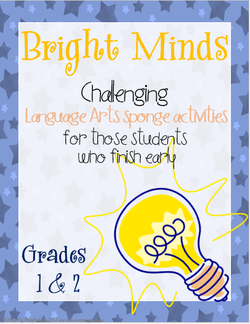 In my Chinese New Year Unit there was an activity where students wrote a story about a zodiac animal, using one of the characteristics of that animal, for example, if the card had a sheep on it and said "creative", the students had to come up with a story about a creative sheep. I was BLOWN AWAY by their stories. They were so clever and creative-some of them even had me laughing pretty hard. I just had to give them more opportunities to write freely, so I used that motivation to create the activities for this Bright Minds language arts unit. There are 18 animal characteristic prompt cards, as well as 18 silly situation prompt cards, and 18 prompt cards that get students to think deeply about their emotions and memories. But that is not all, there are several word building activities and even activities for inferring and cause and effect work too. I really believe this unit will spark more creativity in my students and I CANNOT WAIT to see what they come up with. 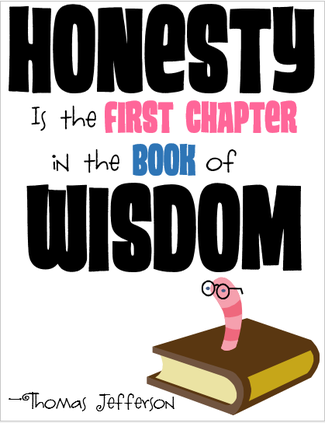 T.G.I.F! It was a C-R-A-Z-Y day today in first grade, but I am celebrating due to the fact that i SURVIVED my first round of full-responsibility! With three awesome evaluations from my supervisor, and ten days worth of lesson plans and memories, I feel so much more prepared for round 2 of full- responsibility coming up in week 10. Bring it on! 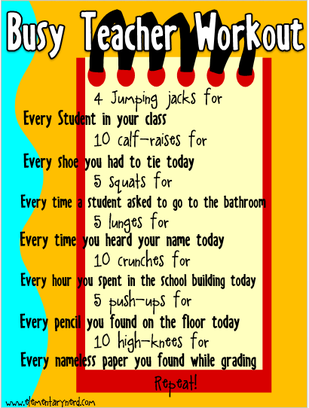 Since student teaching began, my once healthy drive for exercising has dwindled quite a bit. During the month of February on my campus, Wednesdays have been deemed "Warm-Up Wednesdays" where teachers get to wear warm-ups during the day and the kids get taught a mini-lesson on fitness and health during their daily morning assembly. All of this emphasis on exercise got me thinking about getting back to my routine, and I thought it would be fun to create a workout that coincides with my new life as a teacher. A healthy teacher is a happy teacher, so WHO'S WITH ME?! |
AuthorI'm just an Elementary Nerd sharing my excitement for the classroom! Blogs to check out:Weekly Updates:Favorites:Archives:
November 2017
Follow Me! |


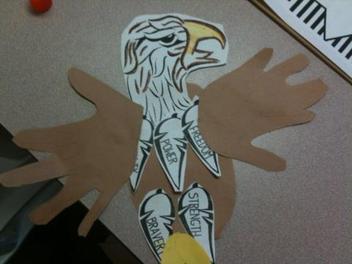
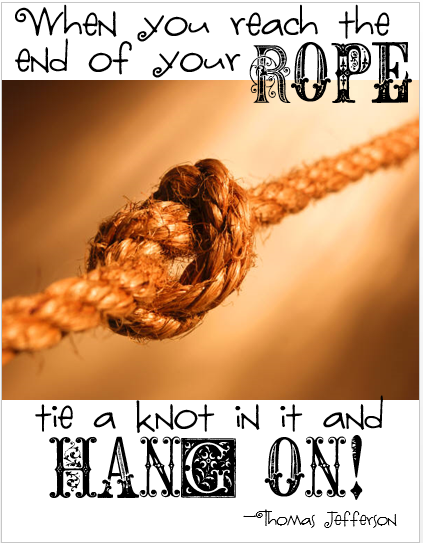


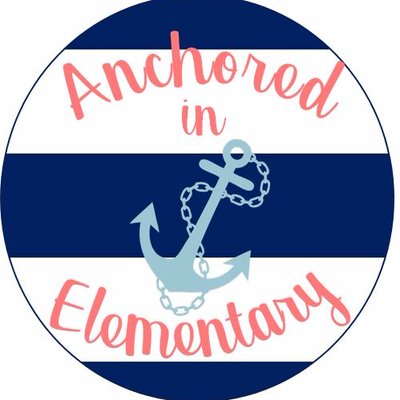


 RSS Feed
RSS Feed
